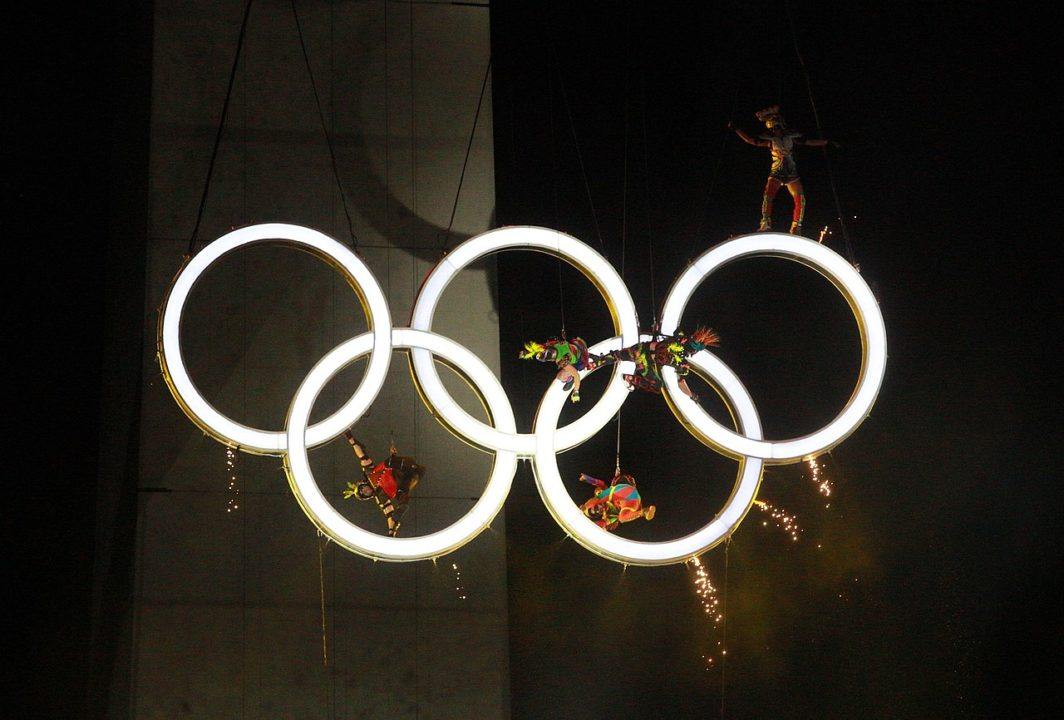SwimSwam will periodically update you on the biggest news around the Olympic and Paralympic world, outside of aquatic sports. Read on to learn about the Tokyo Olympics’ recent financial report, the NHL’s decision to opt-out of the 2022 Beijing Winter Olympics, and the USOPC’s approval of Salt Lake City’s bid for the 2030 Winter Olympics.
Tokyo Olympics Financial Report Details Savings Over Original December 2020 Budget
The Tokyo 2020 Games Organizing Committee provided financial details of the Olympic and Paralympic Games today. Overall, the committee managed to save money when compared to the December 2020 version of the budget. The expected total cost of 1.64 trillion yen (approximately $14.3 billion USD) was reduced to 1.45 trillion yen ($12.7 billion). Because of the lower cost, there will be no need for additional public money.
Much of this was possible due to streamlined procedures with the Olympic Games and because most events were held without spectators. The low number of attendees meant the organizing committee required less manpower.
However, the committee did feel the financial effects of COVID-19. There was a loss of 896 billion yen ($784.7 million) from the lack of ticket sales, leading to a total revenue of 6.43 trillion yen ($5.5 billion). There was also a subsidy for COVID-19 countermeasures that came out to 6.43 trillion yen ($5.5 billion) as well.
The rescheduling caused by the pandemic also incurred an extra cost of 294 billion yen ($2.5 billion), meant to cover operations and virus countermeasures.
When Japan first bid for the Olympics in 2013, the estimated cost was 734 billion yen ($6.3 billion).
NHL Players will not Participate in 2022 Olympic Winter Games
The National Hockey League (NHL) and the National Hockey League Players’ Association (NHLPA) announced that NFL players will not participate in the 2022 Beijing Winter Olympics. The decision was spurred by a COVID-19 outbreak that has disrupted the league’s schedule, causing 50 games to be postponed thus far.
Luc Tardiff, President of the International Ice Hockey Federation (IIHF), issued a brief statement and said,
Although we are disappointed to receive this decision by the NHL and NHLPA, we nevertheless fully understand the circumstances that forced this action to be taken…we understand the NHL’s decision is in the best interest of the health and safety of its players.
NHL Commissioner Gary Bettman said the league and the players’ association waited as long as possible to make this decision. He added that they explored every possible option for athletes to play in the Winter Olympics, but the disruption dealt to the NHL’s season schedule made participation impossible.
The 2022 Beijing Winter Olympics will begin on February 4, 2022, and end on February 20. Bettman and Don Fehr, Executive Director of the NHLPA, stated that they will begin rescheduling games for those dates. “The players and hockey fans are quite disappointed,” Fehr said in a statement, “but playing a full 82-game season this year…is very important. We expect that NHL players will return to the Olympics in 2026.”
The NHL 2022 Stanley Cup Playoffs are scheduled to begin May 2, 2022, and end no later than June 30. The league is composed of international players, including those from Canada, the United States, Sweden, Russia, and others.
USOPC Board Approves Salt Lake City Bid for 2030 Olympic Winter Games
The U.S. Olympic & Paralympic Committee (USOPC) recognized Salt Lake City as its candidate for the 2030 Olympic Winter Games bid. Previously, the committee did not indicate if it preferred hosting in 2030 or 2034, but now all eyes are on 2030.
Much of this had to do with the progress the Salt Lake City-Utah Committee recently made, including the $2.2 billion USD budget they outlined a few weeks ago.
USOPC Chair Susanne Lyons said:
So we’re very excited to have already begun conversations, which are part of a continuing dialogue with the IOC, about the potential for a Winter Games here in Salt Lake City as early as 2030… We know that Salt Lake City offers a great opportunity for Winter Games that are athlete-centric, spectator-friendly, environmentally-conscious in a state that overwhelmingly supports hosting the Games. They have a plan that fits the long-term goals of this state and builds a legacy for global winter sports across the world.
Organizers of LA28 will also be instrumental in moving forward with the 2030 Winter Olympic Games bid. Lyons explained, “I would say that they are very much willing to work very, very closely with all of us to see if we can find that path: can we make it work financially and logistically, so that we can be in a position to host both of those Games.”
The USOPC’s resolution should make Salt Lake City the front-runner to win the bid. It currently faces competition from Sapporo (Japan), Vancouver (Canada), Barcelona and Pyrenees (Spain), and Ukraine. However, Sapporo is currently the only bidder with an advanced project plan.

The TGOC [pace COVID-19]and most Olympic organizing committees for the Summer Games have shown gross amounts of debt [think of Athens’s utter financial debacle!] due to a simple principle: NO fiscal discipline when you’re spending other people’s money, usu. the government’s! Peter Ueberroth was the genius who led the LA Games in ’84 and turned a healthy profit to boot. When you put in the right men and women to cost control, you can do this without literally breaking the bank. Or you can do what Beijing and Sochi did: spend tens of billions of USD and end up with an extravaganza that you’ll be paying for [secretly] for decades.